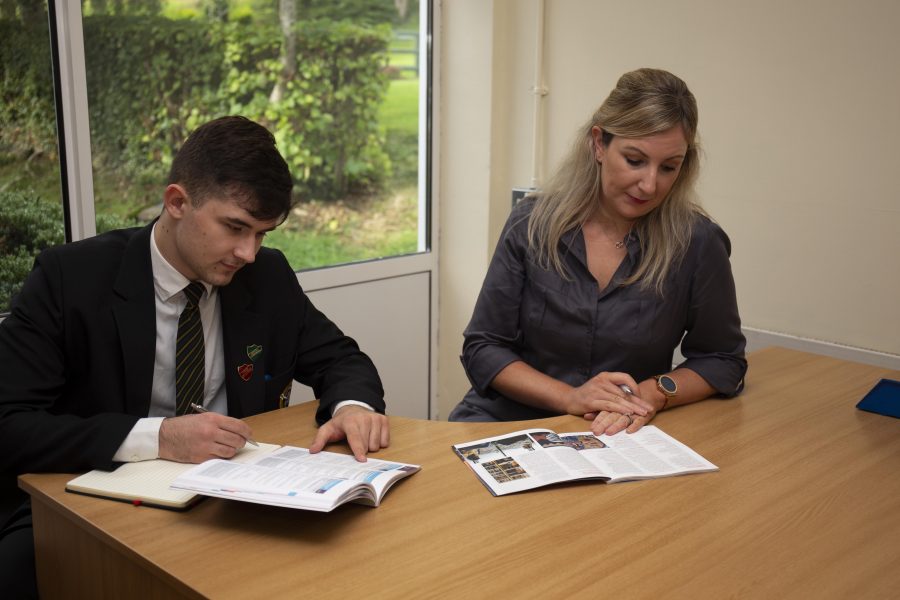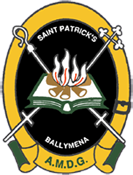CEAIG (Careers)

| About our subject: St. Patrick’s College is committed to providing a planned programme of Careers Education and Information, Advice and Guidance (CEIAG) for all students in Years 10-14 in partnership with the DfE, Employers and other key stakeholders.“CEIAG makes a major contribution to enabling a learner become employable. It provides the opportunities for a learner to develop the skills, competencies, attributes and dispositions necessary for sustained employment” (Minister of Education 2012) The overall objective of effective CEIAG provision in St. Patrick’s College is to enable our pupils to become effective career decision makers, empowered to manage their own career development successfully, confidently and with due respect and care for their own needs, those of others and of their wider communities. There are three aims needed to realise this objective. (The CEAIG Learning Map – Preparing for Success) Aim 1: Self-Awareness and Development -identifying, assessing and developing the skills and qualities necessary to choose and implement an appropriate career plan. Aim 2: Career Exploration -acquiring and evaluating information, and reviewing experiences to identify and investigate appropriate career pathways and learning opportunities in education, training and employment, locally, nationally and internationally. Aim 3: Career Management -developing skills in career planning, and employing effective career decision-making strategies to manage transition and make suitable career development choices, with the appropriate support, advice. The CEIAG learning offer will include the 5 component parts of an effective careers programme: • Careers Education - taught timetabled careers education provision which includes meaningful opportunities for progressive personal career planning; St. Patrick’s College has discrete provision which enables learners to develop their knowledge, understanding, skills and experience of opportunities, to manage their career development, and make relevant informed choices, ensuring successful transition into education, training or employment and become lifelong learners. Timetabled careers lessons are delivered in ICT Suites to Years 10-14. Pupils begin personal career planning in Year 10 which is a continuous and evolving process, involving documented self-awareness, decision-making, planning and research into each learner’s next stage of education, training or employment. It includes thorough exploration of all aspects of intended jobs and alternative options for training, further or higher education and employment. Personal careers plans draw on and contribute to other action planning undertaken as part of the pupil’s everyday learning programme. • Careers Information - access to up-to-date careers information; The department access and offer a broad range of relevant and up-to-date high quality careers information and resource materials that are available for the pupils. This includes information on the range of options in education, training and employment, job profiles and the entry routes into the appropriate potential career pathways. Information is available from all subject teachers, Labour Market Information, external agencies and guest speakers. We include access to appropriate software packages such as Job Explorer Database, Cascaid and web-based resources such as www.careersserviceni.com, www.deni.org.uk, www.economy-ni.gov.uk ,www.gov.uk and www.nidirect.gov.uk as well as from the individual Sector Skills Councils (SSC) websites. • Careers Advice and Guidance - planned opportunities to individual and impartial careers advice and guidance; Advice and guidance opportunities, which focus on the needs and concerns of individual learners, are provided. This guidance will firstly help pupils make realistic decisions and secondly, helping the pupil to create a good career plan and to become a good career planner. Guidance is offered by CEAIG department members in the form of individual interviews to Year 10 and Year 14. Guidance interviews are provided by DfE Careers Advisor to Year 12 students. Guidance includes all of the elements stated below: • Helping pupils to identify complex and multiple needs, involving SENCO(Learning Support Co-ordinator) and MTS Sulby (providing technology and support for students eligible for DSA); • Exploring a range of options; • Relating information to learner’s needs and circumstances (referring to IEPs(PLPs) • Assessing skills, abilities, interests and values through the use of JED ‘Suits me quiz’ and Cascaid Xello • Helping learners make decisions about their career and progression Guidance Interview details are recorded and kept by the CEAIG Department. • Work-Related Learning - opportunities for planned and relevant work related learning experiences including; work experience and work shadowing. These experiences cover a wide range of provision largely provided through an extended work-related learning opportunity, such as work experience or work shadowing. Work related learning experiences also include work-based assignments, industrial visits, mock interviews, industry days and enterprising activities such as workshops provided by external agency -Young Enterprise. Compulsory, one week work placements are provided in Years 11 and 13. • Development of Employability Skills - realistic and meaningful cross curricular opportunities for development of employability skills. This will include opportunities to develop the following skills; communication, numeracy, ICT, working with others, problem solving, decision making, self-management and managing information. In addition, learners should be provided with opportunities to develop key aptitudes and dispositions including personal responsibility, curiosity, concern for others, community spirit, self-belief, flexibility, tolerance, commitment, respect and integrity. Learning for Life & Work consists of three strands, namely Personal Social and Health Education (PSHE), Local and Global Citizenship and Education for Employability and is delivered at Key stages 3 and 4. At key stage 3 it also includes Home Economics. The Education for Employability strand is delivered to all pupils in Key Stage 3 as part of discrete LLW classes. Key Stage 4 pupils have the opportunity to study Education for Employability through LLW at GCSE level, Princes Trust or Personal Success and Wellbeing OCN NI. In accordance with Preparing for Success – A Guide to Developing Effective Career Decision Makers and the Gatsby benchmarks. Staff members: CEIAG Co-ordinator – Mrs K Keenan CEIAG Assistant Co-ordinator – Mrs A McErlain CEIAG teacher – Mrs J Mullan CEIAG teacher – Mrs C Harkins |
School Life

